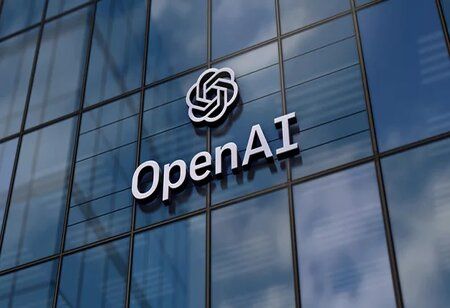By Global Consultants Review Team
 OpenAI now requires government ID verification for developers seeking access to its most advanced AI models, possibly in an effort to keep its models out of the hands of Chinese competitors.
OpenAI now requires government ID verification for developers seeking access to its most advanced AI models, possibly in an effort to keep its models out of the hands of Chinese competitors.
This follows a new research paper from AI content detection company Copyleaks, which estimates that 74.2% of the outputs from a rival Chinese AI model, DeepSeek-R1, were classified as written by OpenAI.
"This discovery raises concerns about DeepSeek-R1's resemblance to OpenAI's model, particularly regarding data sourcing, IP rights, and transparency," Copyleaks stated in an official statement. "Undisclosed reliance on existing models can reinforce biases, limit diversity, and pose legal or ethical risks."
OpenAI stated on its website that ID verification was implemented because "a small minority of developers intentionally use the OpenAI APIs in violation of our usage policies."
However, after verification, developers will have access to Reasoning Summaries for o1, o3-mini, o3, and o4-mini.
OpenAI has also stated that it supports "identification from over 200 countries." However, it has not provided an open list, instead stating that "the best way to see if your country is supported is to start the verification process."
Copyleaks claims to have combined three AI classifiers, all trained on texts from Claude, Gemini, Llama, and OpenAI, that "identified subtle stylistic features like sentence structure, vocabulary, and phrasing" with a 99.88% precision rate and a 0.04% false-positive rate.
The classifier, which was also tested on other models such as Microsoft's phi-4 and Elon Musk's Grok-1, discovered that those models had almost no similarity to OpenAI, scoring 99.3% and 100.3% "no-agreement" respectively, indicating that they were trained independently.
Mistral's Mixtral model shared some similarities, but DeepSeek's numbers stood out, according to the report.
All of this comes after DeepSeek shocked the AI community by releasing its model earlier this year, which performed similarly to Silicon Valley offerings but cost a fraction of the price.
There is another side to this picture. OpenAI developed its early models by scraping the web and using content from news publishers, authors, and creators, often without their permission, resulting in multiple lawsuits.
We use cookies to ensure you get the best experience on our website. Read more...